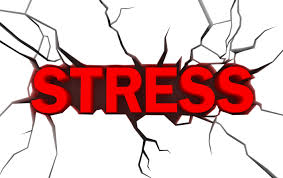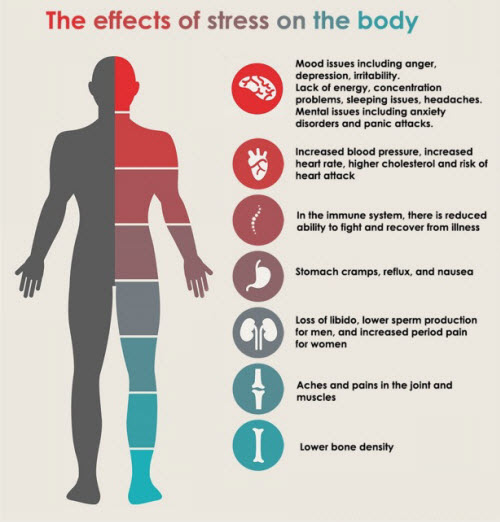 ATC
ATC
WHAT IS HEALTH AND WELLNESS?
Wellness is an active process of becoming aware of and making choices toward a healthy and fulfilling life. Wellness is more than being free from illness, it is a dynamic process of change and growth. The World Health Organization (WHO) states, “...a state of complete physical, mental, and social well-being, and not merely the absence of disease or infirmity.”
WHY WELLNESS MATTERS
Maintaining an optimal level of wellness is absolutely crucial to live a good quality life. Wellness matters because everything we do and every emotion we feel relates to our well-being. In turn, our well being directly affects our actions and emotions. It is a never-ending circle. It is important for everyone to achieve optimal wellness in order to subdue stress, reduce risk of chronic disease and ensure positive social interactions.
THE EIGHT DIMENSIONS OF WELLNESS
There are eight dimensions of wellness, each dimension is equally vital in the pursuit of optimum health. One can reach an optimum level of wellness by understanding how to maintain and optimize each dimension.
1. Emotional Wellness
Emotional wellness relates to understanding your feelings and coping effectively with stress. It is important to pay attention to self-care, relaxation, stress reduction and the development of inner resources so you can learn and grow from experiences.
2. Environmental Wellness
Environmental wellness inspires us to live a lifestyle that is respectful of our surroundings. This realm encourages us to live in harmony with the Earth by taking action to protect it. Environmental well-being promotes interaction with nature and your personal environment.
3. Financial Wellness
Financial Wellness involves the process of learning how to successfully manage financial expenses. Money plays a critical role in our lives and not having enough of it impacts health as well as academic performance. Financial stress is repeatedly found to be a common source of stress, anxiety and fear for college students.
4. Intellectual Wellness
Intellectual wellness involves having an open mind when you encounter new ideas and continuing to expand your knowledge. It encourages active participation in scholastic, cultural and community activities.
5. Occupational Wellness
Occupational wellness is about enjoying your occupational endeavors and appreciating your contributions. This dimension of wellness encourages personal satisfaction and enrichment in one’s life through work.
6. Physical Wellness
Physical wellness relates to maintaining a healthy body and seeking care when needed. Physical health is attained through exercise, eating well, getting enough sleep and paying attention to the signs of illness and getting help when needed.
7. Social Wellness
Social wellness helps you perform social roles effectively and comfortably, and create a support network. This dimension of wellness allows you to not only develop encouraging relationships with peers, but also intimate relationships with romantic partners.
8. Spiritual Wellness
Spiritual wellness allows you to develop a set of values that help you seek meaning and purpose. Spirituality can be represented in many ways, for example, through relaxation or religion. But being spiritually well means knowing which resources to use to cope with issues that come up in everyday life.
THE MIND YOUR HEALTH

“Stress is a physical, chemical or emotional factor that causes bodily or mental tension and may be a factor in disease causation” - Webster's Dictionary
It arises from unexpected events or developmental transitions that create new demands and uncertainty. It is the pressures of life and how one perceives, believes, reacts and copes with them. It is a fact of life and it is here to stay. It includes caring for a new baby, renovating a house, facing a relationship breakup or the loss of a loved one.
DID YOU KNOW THAT...?
All forms of stress produce physical reaction in the body
The body’s stress response involves more than 1,400 known physical and chemical reactions
Excessive release of these stress hormones can damage cells, tissues and organs
Every individual’s natural response to stress is to FIGHT, FLEE OR FREEZE
Helped humans to survive in the days when we faced threats of starvation, WILD ANIMALS and WAR
THE 3 STAGES OF STRESS RESPONSE
1.
ALARM
This is a short term burst of adrenaline to enable a person fight victoriously or flee to safety.
This burst of adrenaline creates a temporary high and produces energy. It makes a person excited and allows them to function well with less sleep.
2. RESISTANCE
The body no longer reacts with fight or flee response. Now, the person is trying to adapt to the negative situations with coping skills and techniques.
3. EXHAUSTION
The body begins to break down and the risk of chronic disease increases drastically.
It is also called Adrenal exhaustion or Burnout. Adrenal function is impaired and every organ and system in the body is affected. The individual becomes prone to auto-immune diseases like lupus, rheumatoid arthritis, psoriasis, Alzheimer's and cancer.
CORTISOL...a stress hormone
When the body is under prolonged stress, cortisol remains elevated.
The brain loses its sensitivity to cortisol and becomes unable to regulate its production.
The body panics and produces more cortisol and less of the youth hormone called DHEA.
DHEA has a tissue building effect while cortisol has a tearing down effect.
EFFECTS OF EXCESS CORTISOL
Obesity- it stimulates the person’s appetite, creating a constant craving for sugar. Leading especially to truncal obesity
Sex hormone difficulties- Erectile dysfunction, drop in testosterone and decreased sex drive
In women it can lead to progesterone deficiency significant menopausal symptoms and menstrual problems
Memory loss –it causes the hippocampus to begin to atrophy and shrink
Depression-1 in every 10 depressive patients have enlarged adrenal glands
Bone loss-osteoporosis
Decreased Immune Function – recurrent infections etc
CORTISOL reduces the natural killers that destroy cancer cells by 50%
ACUTE STRESS
Acute stress is a response to a short term stressor e.g. making a presentation, meeting a deadline, 1st date. It can make you feel excited and challenged, giving you energy to perform your best.
CHRONIC STRESS
Chronic Stress is a response to a stressor that continues for more than a couple of hours a day. E.g. Unhappy relationships, taking care of family members, not feeling competent at your job, or a difficult boss.
On-going worry, anxiety and fear can affect your brain, your heart, your weight, your resistance to disease and your genetic makeup. Chronic stress has negative effects on your mind and body when not managed properly.
Do you feel tired frequently?
Are you adding or losing weight?
Are you spending fewer hours at previously favourite activities?
Have your sexual energies waned?
Are you dependent on stimulants or sedatives?
Do your staff members avoid you?
Heart-Pounding, Stomach-Knotting: Stress and You
The Stress Response
Your muscles tense, your heart races, and your breath become faster -- we all know what stress feels like. The “fight or flight” response is behind it: Your hormones get your body ready to either take on a threat or run from it. If this happens too often -- say, every day during your commute -- it’s called “chronic stress,” and it can take a toll on different parts of your body and your overall health.
SOME PHYSICAL SIGNS OF STRESS
Headaches
Twitching eyelids and face
Facial/jaw pain
Dry mouth and throat
Heart palpitations
Loss of memory
Increased blood pressure
Fatigue
Menstrual distress
Rashes
Stomach pain

SOME EMOTIONAL SIGNS OF STRESS
Increased irritability
Moodiness
Depression
Aggression
Loss of memory
Over excitability
Nervousness over usually small things
Feelings of frustration
Racing thoughts
Lack of sexual interests
